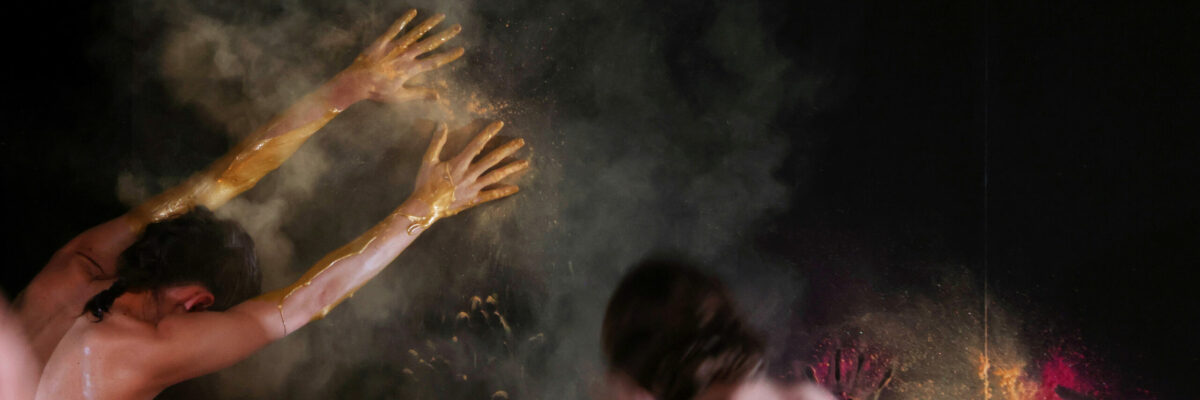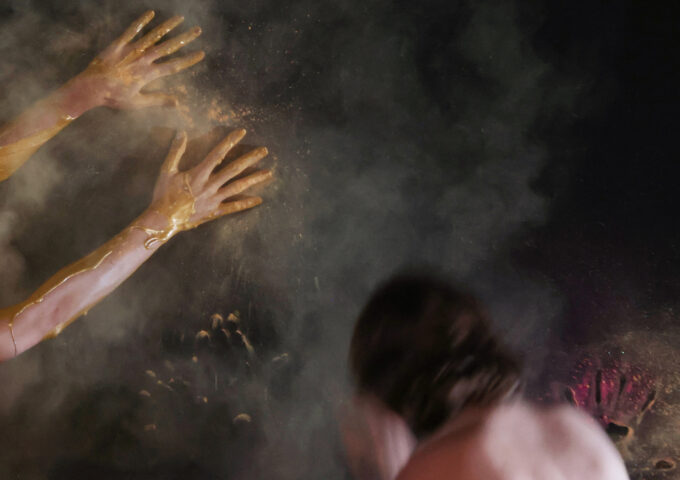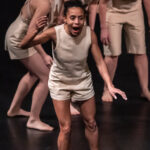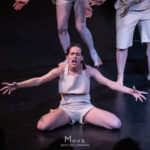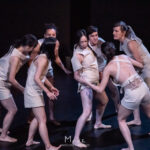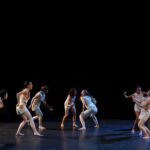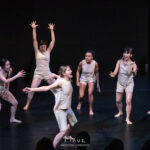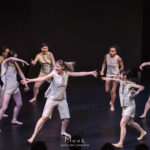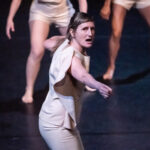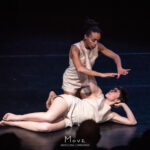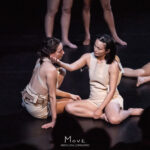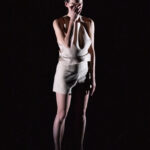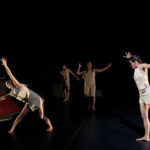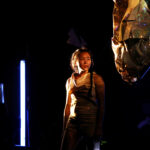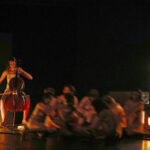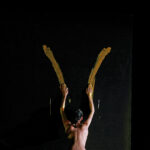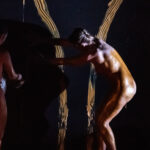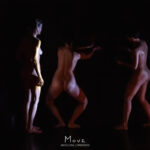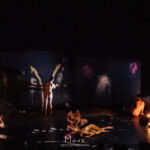Archaea are one of the three earliest forms of life on Earth. In Greek philosophy, ἀρχή means the origin, the foundation, the beginning. Referring to the oldest meaning of ἀρχή, “matriarchy” would therefore mean “mothers since the beginning.” It refers both to the biological fact that, as those who give birth, mothers are the origin of life, and to the idea that mothers are also those who create the beginnings of culture. In French, “archée” is also the principle of life in alchemy, as well as the range of a bow.
Kyoto, Japan. A starry night. Leaving a concert, Mylène Benoit comes across a group of women practicing an ancient martial art: Kyudo, or traditional archery. She is struck by the strength of their movements, both on a spiritual level and as a fighting style. The ancestral power of their taut bodies aiming at the target reminds the choreographer that those feminine movements—and through them, an idea of their place in the construction of history—have disappeared from the official memory of humanity with the advent of patriarchy. With Archée, Mylène Benoit creates a show in which women’s bodies are “a weapon of knowledge, a tool of perpetual relation to the world.” Built in a constant dialogue with nine women, performers and musicians from vastly different horizons (Israel, Spain, Sweden, Taiwan, France…), Archée formulates new “hypotheses of historical reality” to create a fairer memory to allow us to heal and to rearm together the future of both men and women.
Conference with Mylène Benoit and Michel Flandrin, from la FabricA – Festival d’Avignon, 12th January 2021





